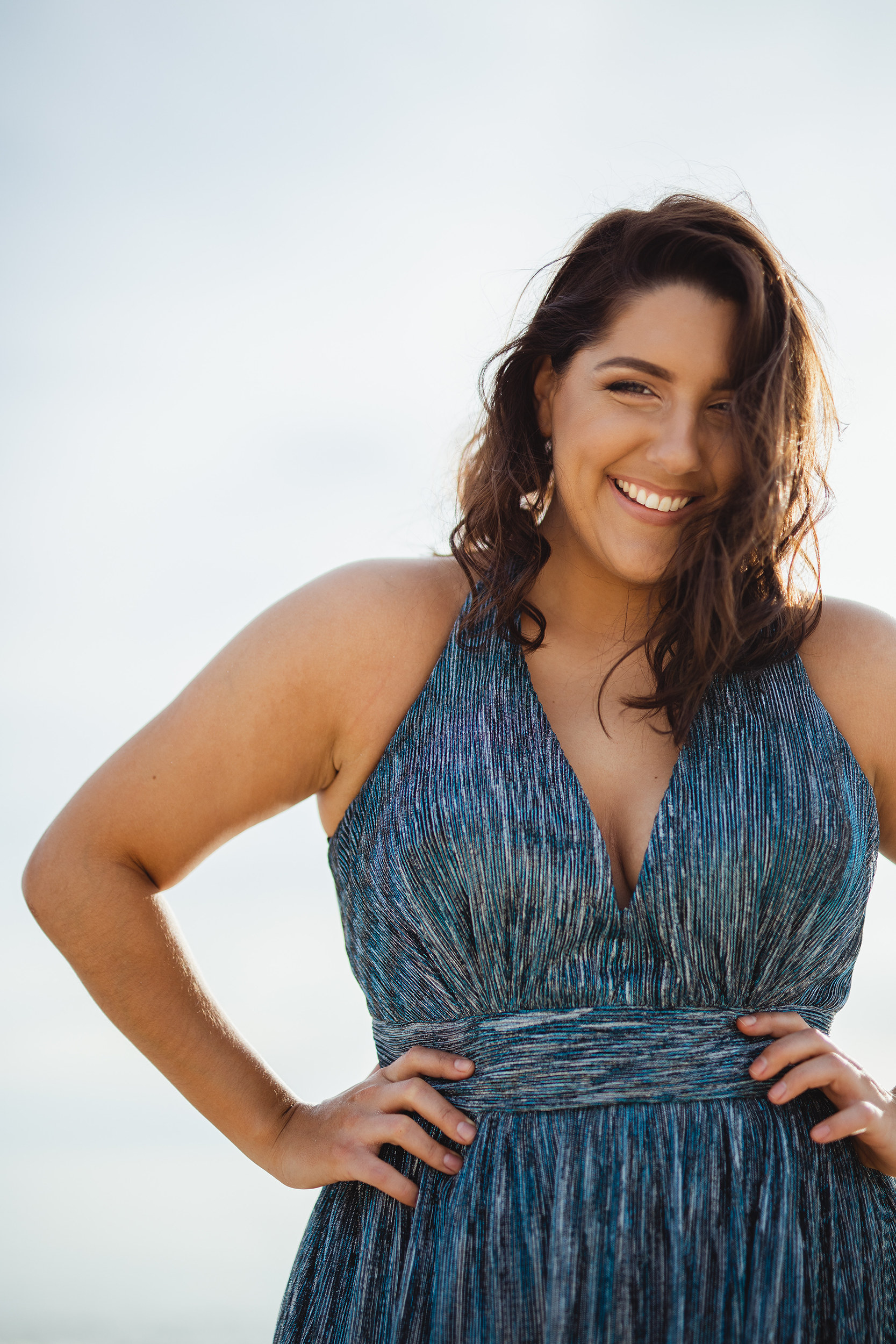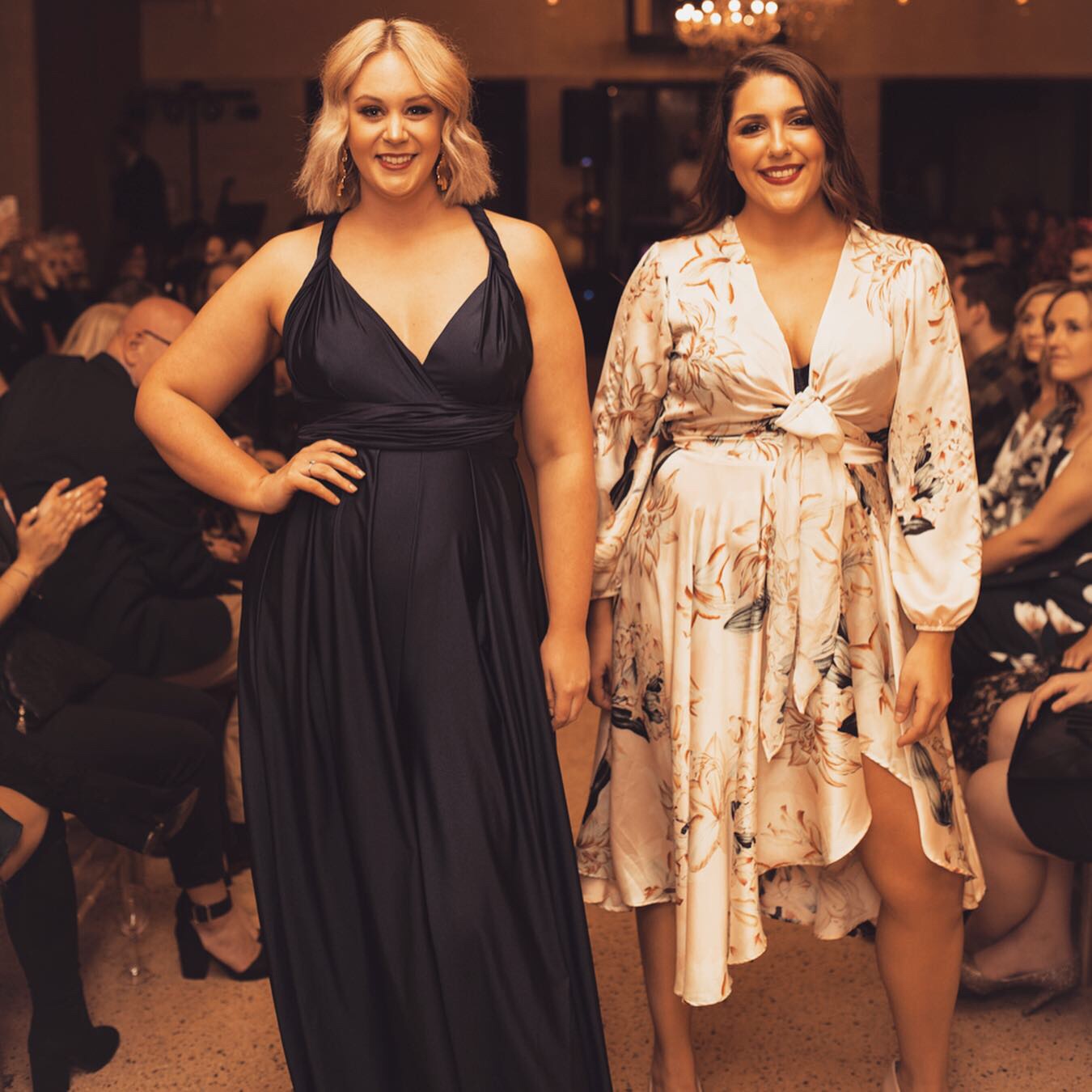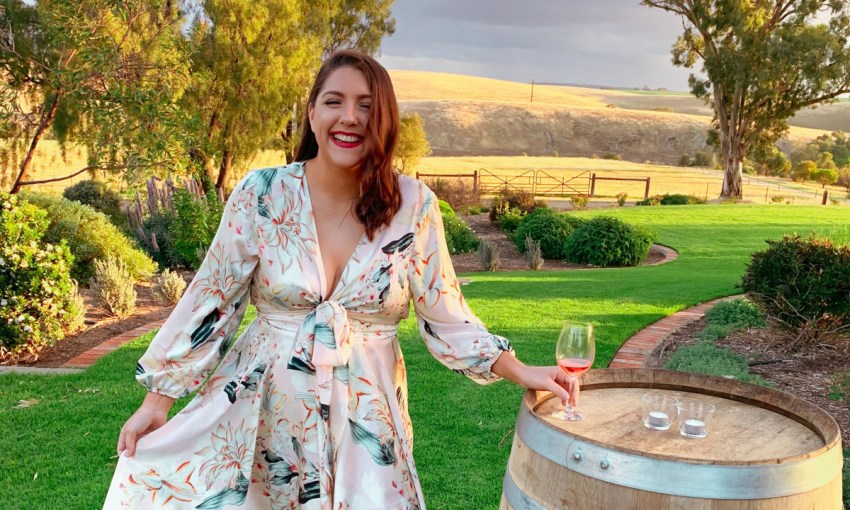Two years since 808 Threads launched, the dress hire business is still one of only a handful of Australian companies designed for curvy women – and co-founder Alexia Frangos is not impressed.
808 Threads and the slow progress of the body positivity movement
Alexia Frangos remembers being 18-years-old, a size 12 and unable to find anything to wear for a one-night gala event – short of forking out hundreds of dollars.
“I went to the typical hire boutiques in the city and it was very limited,” she says. “I thought, ‘why hasn’t anyone done anything past a [size] 12 yet?’”
While Alexia’s Instagram feed was a stream of Australian women’s clothing hire stores, she says most of them only stocked the smallest sizes. The few that did offer dresses in a size 12 or 14, certainly weren’t flaunting them.
“There was no representation, which really annoyed me because I thought I would love to see a size 12,” she says.
“I’d love to see what a model looks like because then I can say, ‘I’ll fit that properly’ or you know, ‘she looks a bit smaller than me, so maybe I’ll need to go the size up’.”
Five years on, Alexia says nothing’s changed.
“I was kind of getting a bit frustrated because no one had made like a curvy hire [store] … I just couldn’t believe that no one had done it yet,” she says.
“Most people, I feel like, are not fully at home with their bodies, or they feel a bit like they need to lose weight or they need to fit in or whatever. That’s why I felt a bit uncomfortable there were so many hire places popping up that didn’t actually have the average Australian size, which is 14 to 16.”

In 2017, Alexia was in her final year of university, studying writing and international relations. She says she had never worked in retail, let alone considered opening a clothing store of her own. Putting her limited experience aside, Alexia says she pitched the idea of a dress hire store for curvy women to her boyfriend over dinner.
“His dad kind of overheard us talking and was like, ‘Oh, I’d love to get involved too,’ which I didn’t expect. That helped a lot, because he has a background in accounting, so he knew a lot of that extra business stuff,” she says.
Within a month, Alexia had the business up and running from the spare bedroom in her house in Stepney.
She began with 40 dresses, sourced from the UK, US and Australia, and now has so many she’s had to order industrial strength clothing wracks to fit them all.
808 Threads’ online presence has also grown.
“For interstate orders, I would say Queensland is probably our biggest and then Melbourne is not far behind … But most of our clients are come in for appointments and to try the clothes on. Then they pick it up and drop it off at the shop,” Alexia says.
The business works in two ways: customers can use the online measurement system to book and order an outfit for hire, or make an appointment for a private consultation. Like traditional boutiques, consultations with Alexia allow customers to try on an outfit before hiring it.
808 Threads stocks dresses, jumpsuits and playsuits, including Australian brands C/MEO Collective, Camilla with Love and Tania Olsen Designs. Alexia says she’d like to offer more Australian designers, but that requires more Australian brands to offer a diverse range of sizes.
“It is, and it was, super hard to find wholesalers in Australia that offer past a size 16,” she says.
“There are particular brands that I’ve seen before … and the fits for some of them are just way off. Like, it’s [advertised as] a size 20 but it fits a 16,” Alexia says.
“Those brands are kind of on a blacklist … they kind of miss the point.”

In the two years since launching 808 Threads, Alexia says she’s seen a lot of improvements in the body-positivity movement globally. But unlike the UK and US – where designers are capitalising on the body liberation movement by creating luxury garments for a diverse range of body types – Alexia says Australia still seems to be lagging behind.
“I think people have been scared of representation… because they don’t want to promote, you know, obesity or whatever they think they are going to promote,” she says.
“I tend to avoid those people that have those kinds of opinions, because… it’s very hard to change that opinion. But I think it starts from the very grassroots, I think that’s a huge thing; how we speak to daughters and sisters and mothers. Not talking about their bodies as a thing.
“It’s changing the language … I’d have loved to see someone like me on TV when I was growing up.
“I think that’s definitely where it starts, because then when those women grow up they’ll want to see a change in the world and in society.”




